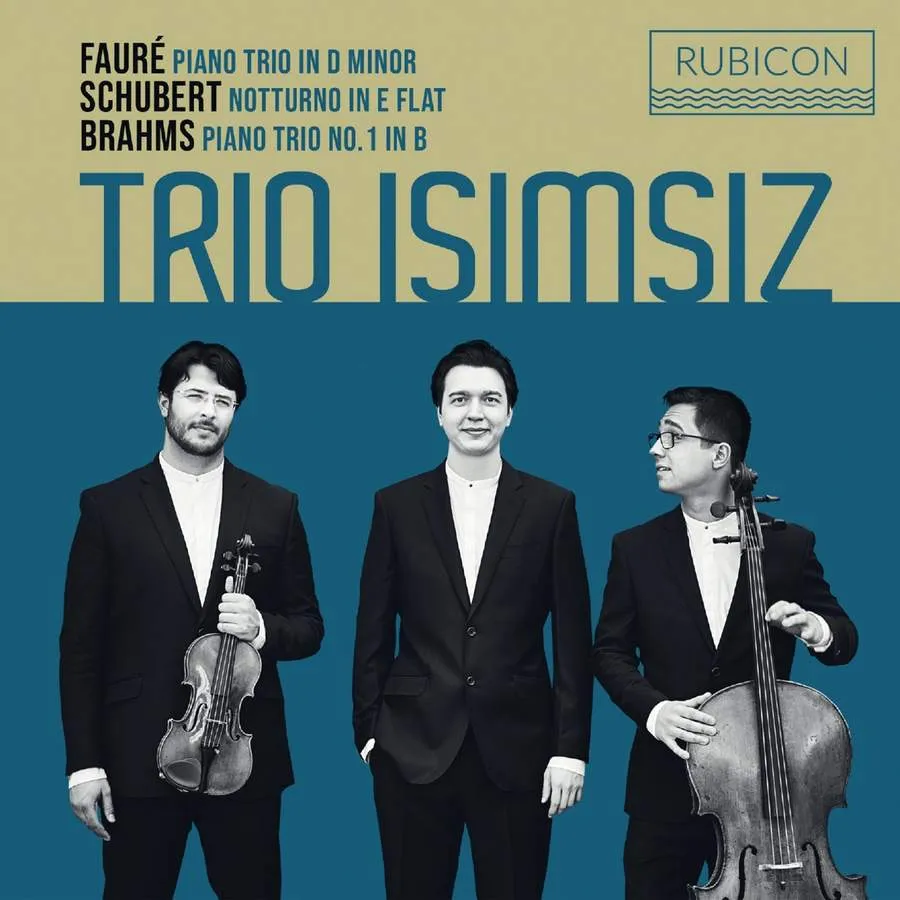
Brahms • Fauré • Schubert Fauré: Piano Trio in D minor, Op. 120; Schubert: Notturno in E flat major, D897 (Op. post. 148); Brahms: Piano Trio No. 1 in B major, Op. 8 Trio Isimsiz Rubicon RCD1048 67:46 mins
Trio Isimsiz’s second release is ostensibly a set of three ‘late’ works for piano trio, although late is a relative term when death comes at the age of 31, as it did for Schubert. But it is Fauré that leads us in, truly late, in that he wrote his only piano trio at the age of 78, but possessing a progressive bent to its maturity that suggests youth is simply a frame of mind. Fauré’s D minor Trio is understated, both in the writing and the playing, from the tangled opening, the growing notion of perpetual motion, then the subtly striking harmonies of the lyrical Andantino.
The opening to Schubert’s Nocturne in E flat major is whisperingly exquisite, a remarkable synthesis between the strings, tender, beautifully shaped, before the more abrasively intense middle section. When the original melody returns, it seems spikier than before, as if it cannot settle. By the time we reach the end of this short work, which has been mooted as a discarded Adagio to one of Schubert’s two piano trios, it is a subtly changed piece.
There’s something of the lullaby about the opening theme of Brahms’s Piano Trio No. 1 in B major – after all, he was barely out of the cradle when he first wrote it. His elder self, at 57 years, scythed some of the runaway excesses of his 21-year-old youth, as if in gentle admonishment, and it is all played with tender and impassioned commitment here, the opening to the third movement Adagio exquisite.
Read more of our reviews of the latest Brahms recordings
Read more of our reviews of the latest Schubert recordings
Read more of our reviews of the latest Fauré recordings
Sarah Urwin Jones